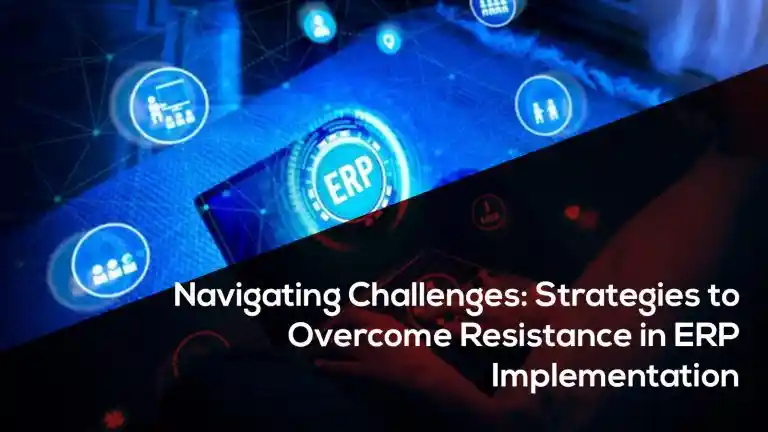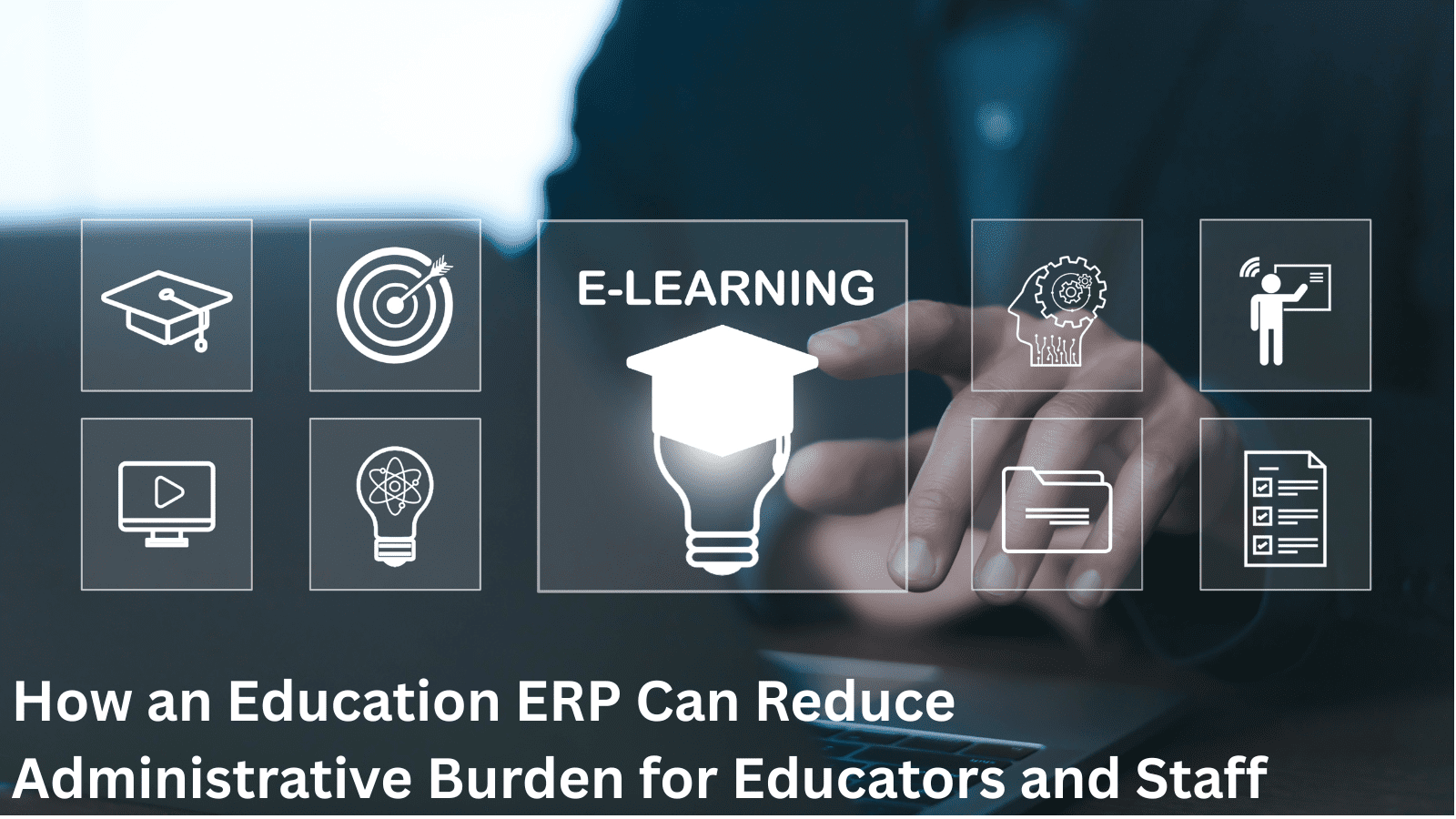Introduction
Enterprise Resource Planning (ERP) systems have become the backbone of modern businesses, streamlining processes, enhancing collaboration, and providing valuable insights. However, the journey of implementing an ERP solution is not without its challenges, and one of the primary hurdles is resistance.
In this blog post, we will look into effective strategies to overcome resistance during ERP implementation with tips for a successful deployment.
Understanding Resistance
Resistance to change is a natural human reaction, often fueled by fear of the unknown or concerns about changes to routine. When it comes to ERP implementation, employees may worry about learning new technologies, potential job changes, or the impact on their daily tasks. Addressing these concerns is crucial to creating a positive atmosphere for the adoption of the ERP system.
Strategies to Overcome Resistance
Communication is Key
Establishing open and transparent communication channels is the cornerstone of successful ERP implementation. Regularly communicate the reasons behind the ERP adoption, the benefits it brings, and how it aligns with the company’s long-term goals. Addressing concerns head-on and providing a clear vision can reduce resistance. According to a survey by Prosci, companies with effective communication strategies during change are 3.5 times more likely to outperform their industry peers.
User Involvement and Training
Involve end-users from the beginning. Their input is invaluable in understanding the daily challenges they face. Additionally, comprehensive training programs tailored to different user groups are helpful. A well-trained workforce is more likely to embrace the new system and leverage its capabilities effectively. Research from Panorama Consulting Solutions indicates that 70% of ERP projects fail due to a lack of user acceptance and inadequate training.
Create a Change Management Plan
Develop a change management plan that outlines the steps involved in the ERP implementation process, which include timelines, milestones, and the roles and responsibilities of each team member. A study by McKinsey found that 70% of change programs fail due to a lack of employee engagement and insufficient management support.
Addressing Concerns Proactively
Actively listen to employees’ concerns and address them actively. Whether it’s increased workload or technical challenges, understanding and addressing these concerns will lead to a more positive attitude towards the ERP implementation. Research by Gartner suggests that addressing resistance during the planning phase can reduce project timelines by up to 30%.
Tips for Successful ERP Implementation
Define Clear Objectives
Clearly define the objectives of the ERP implementation. Whether it’s improving efficiency, reducing costs, or enhancing customer satisfaction, having well-defined goals ensures everyone is on the same page.
Choose the Right ERP Vendor
Selecting the right ERP vendor is crucial. Consider expertise, scalability, and the vendor’s track record. A thorough evaluation process will contribute significantly to the success of the implementation.
Prioritize Data Migration and Integration
Efficient data migration and integration are vital for a seamless transition. Ensure that existing data is accurately transferred to the new system, and integrations with other business applications are well-established.
Regularly Monitor and Evaluate
Implement key performance indicators (KPIs) and regularly monitor the system’s performance against them. This results in identifying potential issues early and the time for solutions.
Conclusion
ERP implementation is a significant undertaking that requires careful planning, effective communication, and a commitment to addressing resistance. By understanding the concerns of stakeholders, implementing strategies, and following best practices, organizations can navigate the challenges of ERP implementation successfully. Remember, the key to success lies in creating a culture that embraces change and views the ERP system as a tool for continuous improvement and growth.
Frequently Asked Questions (FAQs)
Why do employees resist ERP implementation?
Resistance to ERP implementation often stems from fear of the unknown, concerns about job security, or worries about disruptions to daily routines. Addressing these fears through clear communication and involvement in the process can help alleviate resistance.
How can effective communication mitigate resistance?
Communication is pivotal in ERP implementation. Communicate the reasons behind the change, the benefits it brings, and how it aligns with the company’s long-term goals. Regular updates and addressing concerns proactively create a positive environment.
What role does user involvement play in overcoming resistance?
Involving end-users from the beginning is crucial. Their input provides insights into daily challenges, and involving them in decision-making fosters a sense of ownership. This active involvement enhances user acceptance and minimizes resistance.
How important is training in ERP implementation success?
Training is essential. Inadequate user training is a common cause of ERP project failures. Comprehensive training programs tailored to different user groups ensure that employees are well-equipped to leverage the capabilities of the new system.
Why is a change management plan necessary for ERP implementation?
A change management plan outlines the steps involved in the ERP implementation process, including timelines, milestones, and responsibilities. This plan helps set expectations, prepares employees for changes, and ensures a smoother transition.
How can concerns be addressed proactively during ERP implementation?
Actively listen to employees’ concerns and address them proactively. Whether it’s job security, increased workload, or technical challenges, understanding and addressing these concerns during the planning phase contribute significantly to project success.
What tips can ensure a successful ERP implementation?
Define clear objectives, choose the right ERP vendor, prioritize data migration and integration, and regularly monitor and evaluate performance against key metrics. These tips, when followed diligently, contribute to a seamless and successful ERP implementation.
How crucial is the selection of the right ERP vendor?
Choosing the right ERP vendor is paramount. Factors like industry expertise, scalability, and a vendor’s track record should be considered. A thorough evaluation process significantly contributes to the success of the ERP implementation.
Why is data migration and integration important in ERP implementation?
Efficient data migration and integration are vital for a seamless transition. Ensuring accurate transfer of existing data and establishing integrations with other business applications prevent disruptions and support the overall success of the ERP system.
Why should organizations monitor and evaluate ERP system performance regularly?
Regular monitoring with key performance indicators (KPIs) allows for early identification of potential issues. This proactive approach enables organizations to take corrective actions promptly, ensuring the ERP system operates effectively and meets business objectives.








